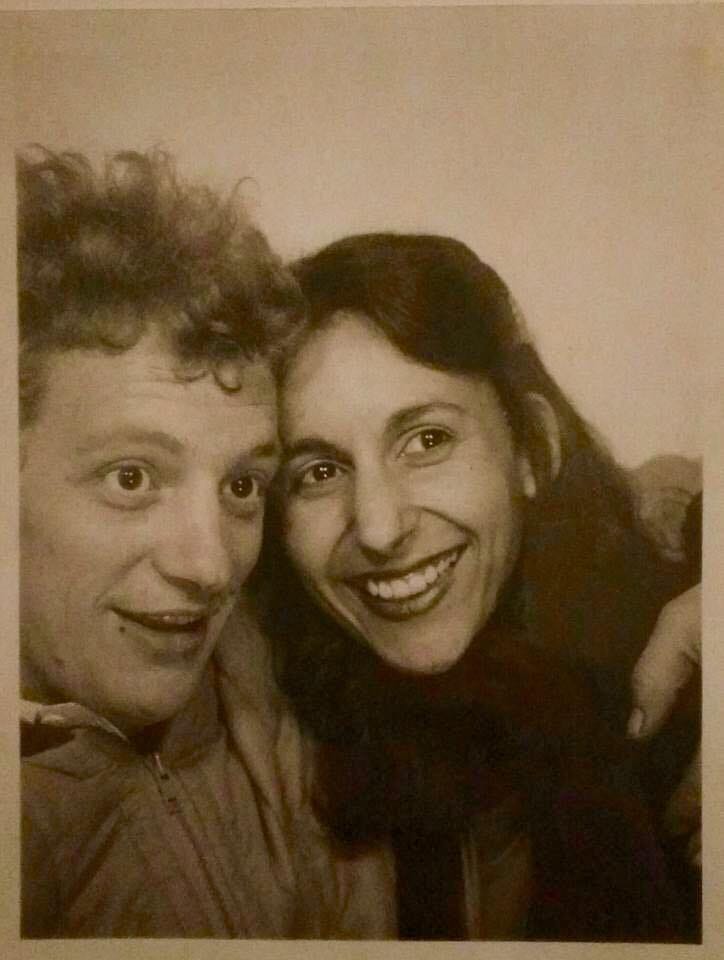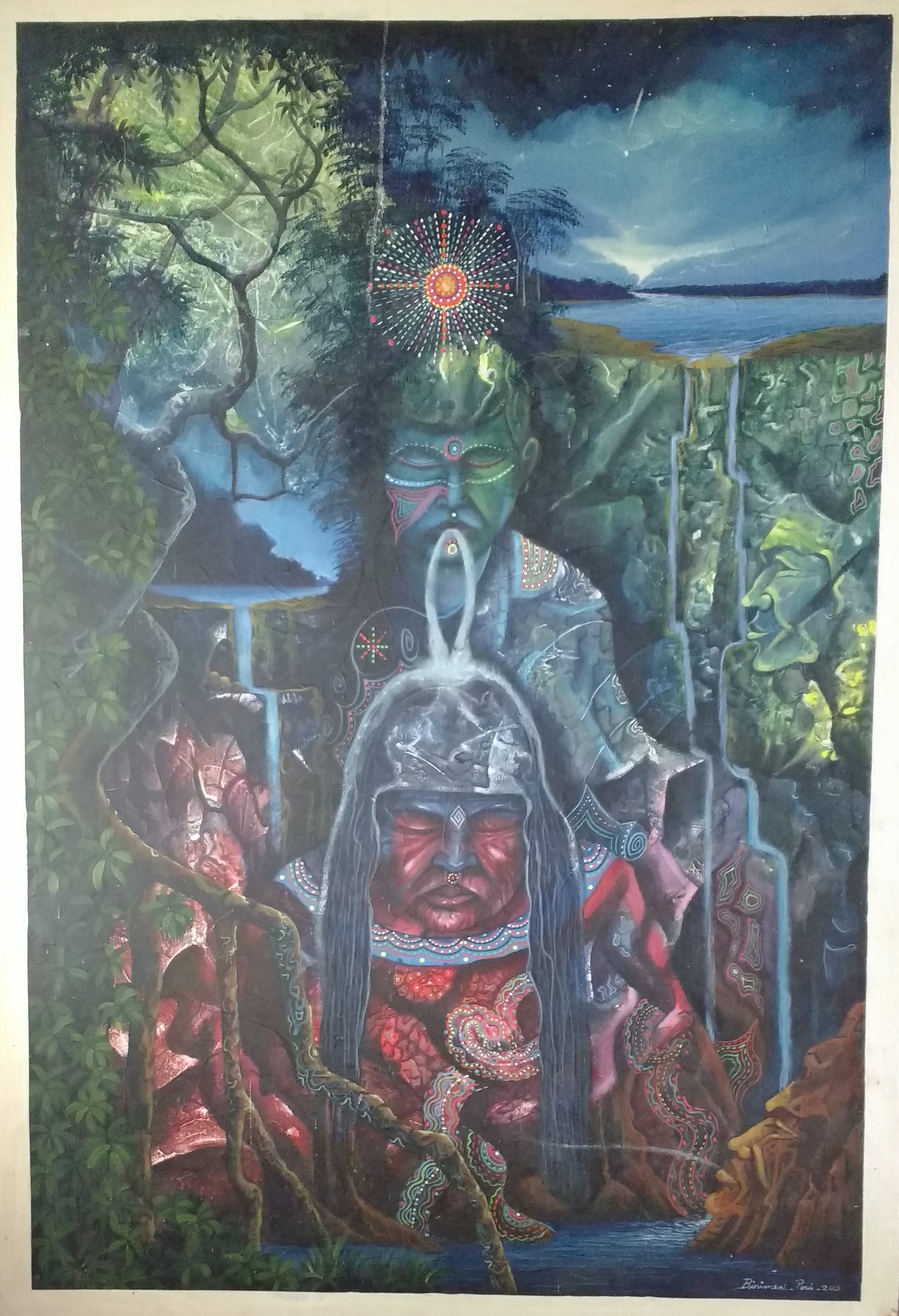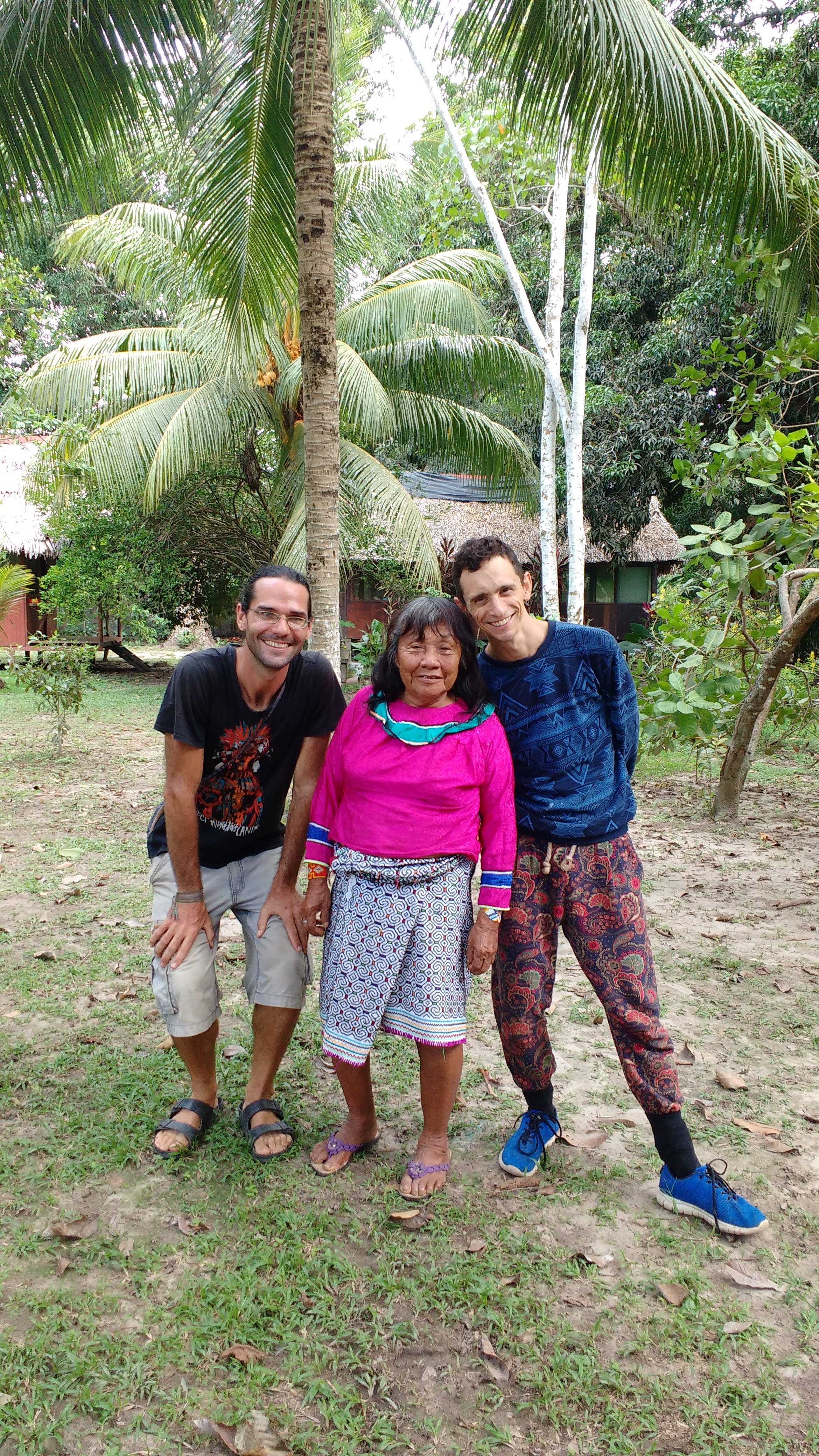Samá with Noya Rao, part 4: The fourth and fifth ceremonies and closing thoughts
26th December 2017
Following the third ceremony, I felt that I was beginning to understand Noya Rao. Noya Rao means ‘the medicine of the flying tree’ in Shipibo. The tree’s leaves glow in the dark, and it is revered as one of most important of all plant spirits. We were told that there are only four Noya Rao trees left in the Amazon. There is basically no information about Noya Rao on the internet. As far as I can tell it is unknown to Western botany.
The Noya Rao brew we drank, which tasted good, wasn’t obviously psychoactive in the usual sense. This meant I had to come to understand its power and significance to the Shipibo in more subtle ways, based mostly on what I had been told about it.
The fact that I had been told there were only four Noya Rao trees left in the Amazon pushed me to consider, and feel, humanity’s impact on the biosphere. From Wikipedia’s entry on Biodiversity:
Almost all scientists acknowledge that the rate of species loss is greater now than at any time in human history, with extinctions occurring at rates hundreds of times higher than background extinction rates. As of 2012, some studies suggest that 25% of all mammal species could be extinct in 20 years.
In absolute terms, the planet has lost 52% of its biodiversity since 1970 according to a 2014 study by the World Wildlife Fund. The Living Planet Report 2014 claims that “the number of mammals, birds, reptiles, amphibians and fish across the globe is, on average, about half the size it was 40 years ago”. Of that number, 39% accounts for the terrestrial wildlife gone, 39% for the marine wildlife gone and 76% for the freshwater wildlife gone. Biodiversity took the biggest hit in Latin America, plummeting 83%.
One of the most important insights for me from the dieta is an appreciation of mystery, the acceptance that there exist practices and technologies of indigenous cultures with huge potential that are far beyond current scientific understanding. How many plant species are going to go extinct before we’ve even had a chance to properly explore their benefits, let alone start to understand their mechanisms of action?
In this way, Noya Rao carried for me a message of responsibility and hope. If we take responsibility for our impact on the biosphere, and seek to encourage biodiversity in all its forms, we stand to benefit from plant medicines in ways we can barely imagine. And in a broader sense, if we start to take responsibility for our actions and seek to act from a place of love and compassion, we have the chance to create a world blissful beyond our wildest dreams. Humanity, life on Earth, can do so, so much better. And this starts with me taking responsibility for my own actions and behaviour.
The fact that I had been told that the leaves of Noya Rao glow in the dark was also significant, often giving me a sense of hope and optimism in the total darkness of the ceremonies. Before the fourth ceremony, I wrote a song, an ode to Noya Rao (that you may hear me sing sometime):
Noya Rao, you teach of Love
You teach us that we are all One
You show us how we can learn and progressNoya Rao, now that we’re friends
We’ll fly together ’til the end
Spreading love across this precious EarthNoya Rao, oh Noya Rao
In the darkness of the night
Noya Rao, oh Noya Rao
With love, there shall be lightOh Noya Rao, oh Noya Rao
Oh Noya Rao, oh Noya Rao
Teach me now
Fourth ceremony
Going into the fourth ceremony, I made an addition to the mantra from the previous one: “In trust and surrender, with humility and respect, with attentiveness and focus”. I drank a full shotglass of ayahuasca and was able to sit with good concentration throughout the icaros. Once Manuela had finished singing to me, I went to Brian to drink another half glass of ayahuasca, feeling this was necessary for me in order to release some shame and regret I was feeling for the disrepect I had shown in the second ceremony.
At the end of the Maneula’s singing, she encouraged others to sing. I had written out the lyrics of the song above on a piece of paper. I lit a candle, and, feeling extremely nervous, began to sing.
At the end of the song, the paper glowed a beautiful green/gold in the candlelight, like I imagine a Noya leaf might glow. I felt hugely honoured to have been able to pay tribute in song to this tree.
The days after the fourth ceremony contained some of the deepest personal insights of my life.
My father, Ian, was a wonderful dad, showing me, my sister and brother absolute love and dedication. He was also deeply troubled as a result of trauma from his own childhood, and was at various times addicted to fast food, cigarettes, alcohol, pornography, spending and heroin. He died at 50, his body destroyed.
I was able to understand that the way in which my father channelled trauma from his childhood into his addictions was in fact a huge sacrifice, a sacrifice born of his love for us.
He could have taken out his trauma out on us and passed it down a generation (as sadly seems to happen in so many families), yet instead he chose to contain it, and with no other effective means of release, it ate away at his physical and mental health.
My father sacrificed himself so that we might know love and happiness. And I understand this is the central reason why I created the Psychedelic Society. The search for a method, a medicine, that could have helped my father deal with his crippling addictions, to release the trauma that destroyed him.
And my mother, Liz. She loved my father until the end. What a love it is that stands firm in the face of addiction and self-destruction. She died just two months after my father from a undetected brain tumour. I believe the effort of sticking with my father for the sake of our family, along with the trauma from having witnessed her own mother succum to bowel cancer, was her real cause of death.
Our parents passed seeing me, my sister and my brother all shine. I imagine them resting in peace, together, as a happy, healthy young couple, deeply in love.

My parents, Ian and Liz
Mum, Dad, I love you, and I am so grateful to you.
May I live a life to make you proud, a life that helps others to work through and release the trauma that destroyed you, Dad.
Fifth ceremony
I felt at peace coming into the fifth ceremony and drank just half a shotglass of ayahuasca. The ceremony felt like a gentle landing, a coming back to earth and opportunity to start focusing on the future after an intense 9 days.
The dieta was an incredibly creative period. I took more than one hundred pages of notes, full of ideas, that will take me some time to go through!
Closing thoughts
Manuela couldn’t perform brain surgery, and I believe a brain surgeon couldn’t do what Manuela does.

Portrait in the kitchen
I believe there is deep wisdom and expertise in the Shipibo plant medicine tradition that Western science cannot yet fully ‘explain’. For the sake of the health and happiness of humanity and all life on earth, we would do well to approach plant medicines and the communities that having been using them for thousands of years with respect and humility.
Thank you to Manuela, Brian, everyone at the community where I stayed, the others on the diet, and of course to Noya Rao and ayahuasca. And thank you, dear reader, for making it this far.
With love, there shall be light!

Brian, Manuela and me
Read more:
- NoyaNete, the organisation through which Manuela, Brian and Jurriën van der Waals organise the dietas
- Alianza Arkana, the NGO that Brian works for, “a grassroots alliance regenerating the Peruvian Amazon by supporting its indigenous people and their traditions”